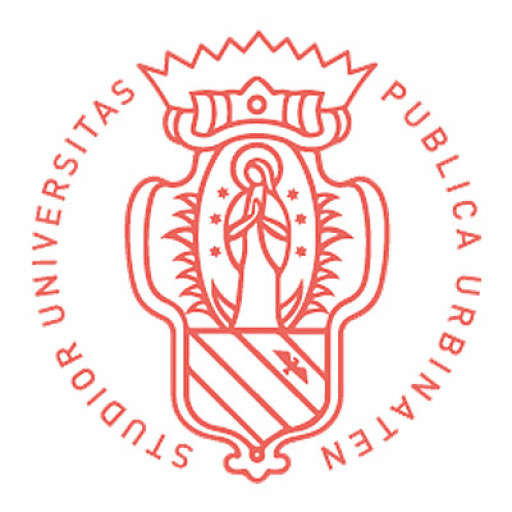Photos of university / #unibirmingham
The Philosophy of Health and Happiness programme at the University of Birmingham offers students a unique opportunity to explore the philosophical foundations and ethical questions surrounding human well-being, health, and happiness. This interdisciplinary course combines insights from philosophy, psychology, medicine, and social sciences to examine what it means to live a good life and how various factors influence our sense of fulfillment and well-being. Throughout the programme, students will engage with contemporary debates on the nature of happiness, the ethical considerations of healthcare, the impact of mental health, and the role of societal structures in promoting individual well-being. They will critically analyze traditional philosophical theories alongside modern scientific research to develop a comprehensive understanding of what constitutes a meaningful and healthy life. The programme emphasizes critical thinking, ethical reasoning, and reflective inquiry, preparing graduates for careers in academia, healthcare policy, mental health advocacy, or further research in related fields. Students will have the opportunity to participate in seminars, workshops, and independent research projects, gaining valuable skills in analysis, argumentation, and communication. The curriculum is designed to foster a nuanced understanding of the moral and philosophical dimensions of health and happiness, encouraging students to consider diverse perspectives and cultural contexts. By blending theoretical knowledge with practical implications, the programme aims to equip graduates with the intellectual tools to address real-world issues such as healthcare ethics, public health strategies, and the promotion of well-being in various communities. Graduates of the Philosophy of Health and Happiness programme will be well-positioned to contribute to ongoing societal dialogues around health policy, mental health initiatives, and ethical questions related to human flourishing. Whether you are interested in pursuing further academic research or developing practical solutions for improving quality of life, this programme provides a solid foundation rooted in rigorous philosophical inquiry and compassionate understanding.
The Philosophy of Health and Happiness program at the University of Birmingham offers an in-depth exploration of the fundamental questions surrounding human well-being, ethical considerations, and the nature of a fulfilled life. This interdisciplinary degree blends philosophical inquiry with insights from health sciences, psychology, and ethics to examine what it means to lead a healthy and happy life in contemporary society. Students will engage with a broad range of topics, including the nature of happiness, moral theories related to well-being, the ethics of healthcare, and the social and cultural factors influencing health and happiness. The program encourages critical thinking and reflective analysis, enabling students to evaluate different philosophical perspectives and philosophical arguments about what constitutes a good life. Through a combination of lectures, seminars, and independent research, students will develop strong analytical skills and a nuanced understanding of complex philosophical issues. The curriculum also emphasizes real-world applications, exploring how philosophical ideas can inform policy-making, healthcare practices, and personal decision-making. Students will have opportunities to participate in discussions on contemporary issues such as mental health, the ethics of medical interventions, and societal approaches to promoting well-being. The program aims to prepare graduates for diverse careers, including healthcare, counseling, public policy, academia, and non-profit organizations, with a deep understanding of the philosophical foundations underpinning health and happiness. With a flexible structure, students can personalize their learning journey by choosing modules aligned with their interests, supported by expert teaching staff committed to fostering an engaging academic environment. The University of Birmingham’s Philosophy of Health and Happiness program is ideal for students passionate about exploring the ethical, philosophical, and practical dimensions of well-being and eager to make meaningful contributions to society's understanding of what it means to live well.
Programme requirements for the Philosophy of Health and Happiness at the University of Birmingham typically encompass a combination of academic prerequisites, application procedures, and specific coursework stipulations. Prospective students generally need to possess a relevant academic qualification, such as A-levels, IB, or equivalent international qualifications, with recommended grades that demonstrate strong analytical and critical thinking skills. Prior study in philosophy, health sciences, psychology, or related disciplines can be advantageous but is not always mandatory.
Applicants are usually required to submit an application through the university’s online application portal, providing academic transcripts, a personal statement outlining their interest in the programme and relevant experiences, and references from previous educators or professionals. In some cases, particularly for mature students or those with non-traditional backgrounds, the admissions team considers relevant work experience and motivation alongside formal qualifications.
Once admitted, students must complete a specified number of credits through core modules and electives. The core modules often include foundational courses in ethics, metaphysics of health, philosophy of happiness, and research methods. Electives may allow students to explore related disciplines such as psychology, sociology, or public health, depending on their interests.
Programme requirements also include attendance at scheduled lectures, seminars, and workshops, as well as active participation in discussions and group projects. Assessment methods typically involve essays, presentations, and examinations, with some modules requiring a dissertation or research project focused on critical issues related to health and happiness.
Additionally, students are encouraged to engage with external organisations, undertake internships, or participate in community projects to enrich their practical understanding of health-related philosophical questions. The programme emphasizes developing critical reasoning, ethical analysis, and effective communication skills, integral for careers in healthcare policy, philosophy, counseling, or academia. To graduate, students must successfully complete all module assessments, maintain a satisfactory academic record, and submit a final dissertation demonstrating comprehensive understanding and original inquiry into the philosophical aspects of health and happiness.
The Philosophy of Health and Happiness program at the University of Birmingham offers a range of financing options to support students during their studies. Domestic students enrolled in this program may be eligible for various scholarships, grants, and bursaries provided by the university, government funding programs, or external organizations. The university's scholarships include the Birmingham Undergraduate International Scholarship, the Excellence Scholarship for UK students, and need-based bursaries designed to assist students from diverse financial backgrounds. These funding opportunities are aimed at reducing the financial burden and making higher education more accessible. Additionally, students can explore government student loan schemes, such as the Student Loans Company, which provide loans on favorable repayment terms for both undergraduate and postgraduate students.
International students are encouraged to investigate scholarship opportunities specifically targeted at international applicants, including the Commonwealth Scholarship and the University International Postgraduate Scholarship. These scholarships often cover partial tuition fees or provide a stipend for living expenses. Students are advised to consult the university’s official financial aid webpage and contact the admissions office for detailed information and application procedures for these funding sources.
In terms of part-time work, the University of Birmingham offers career services that facilitate part-time employment opportunities within the campus and the surrounding Birmingham area. Working part-time can help students manage their expenses while gaining valuable work experience related to their studies. The university also provides guidance on applying for internships, placements, and other work-based learning opportunities that may come with stipends or financial support.
Students are encouraged to apply early for these financial aids as some funding options have limited numbers or specific eligibility criteria. The university’s financial support team offers personalized advice for prospective and current students to optimize their funding strategies throughout their academic journey. Overall, the university is committed to providing comprehensive financial assistance to ensure that students can focus on their academic and personal development without undue financial stress while pursuing the Philosophy of Health and Happiness program.
The Philosophy of Health and Happiness programme at the University of Birmingham offers students an opportunity to explore fundamental questions at the intersection of philosophy, health, and well-being. This interdisciplinary course examines concepts of what it means to lead a good life, the nature of happiness, and the philosophical underpinnings of health from both theoretical and practical perspectives. The programme is designed to critically analyze traditional and contemporary philosophical theories related to human flourishing, the ethics of health and medical practices, and the societal implications of wellbeing initiatives. Students engage with core philosophical disciplines such as ethics, epistemology, and philosophy of mind, applying these frameworks to real-world issues associated with health policy, mental health, happiness measurement, and the moral considerations involved in healthcare decisions.
Throughout the course, learners will participate in lectures, seminars, and independent research projects. The curriculum incorporates a diverse range of topics, including the philosophy of happiness, the nature of subjective well-being, the ethics of medical intervention, and the social determinants of health. Students will also explore psychological and neuroscientific perspectives on happiness, alongside philosophical debates on the nature of consciousness and the mind-body problem. The programme aims to develop critical thinking, ethical reasoning, and reflective skills, preparing graduates for careers in healthcare, policy, academia, or further postgraduate study.
The university emphasizes a supportive learning environment, with small-group teaching, access to expert faculty, and opportunities for interdisciplinary collaboration. Students are encouraged to think analytically and ethically about complex issues affecting individual and societal health, enabling them to contribute thoughtfully to contemporary debates around health policy and ethical considerations in medicine. The programme is suitable for students with an interest in philosophy, health sciences, psychology, or social sciences, and it offers pathways to understanding profound questions about human nature, morality, and well-being. Graduates of this programme will possess a nuanced understanding of how philosophical insights can inform health practices and contribute to personal and societal happiness.








